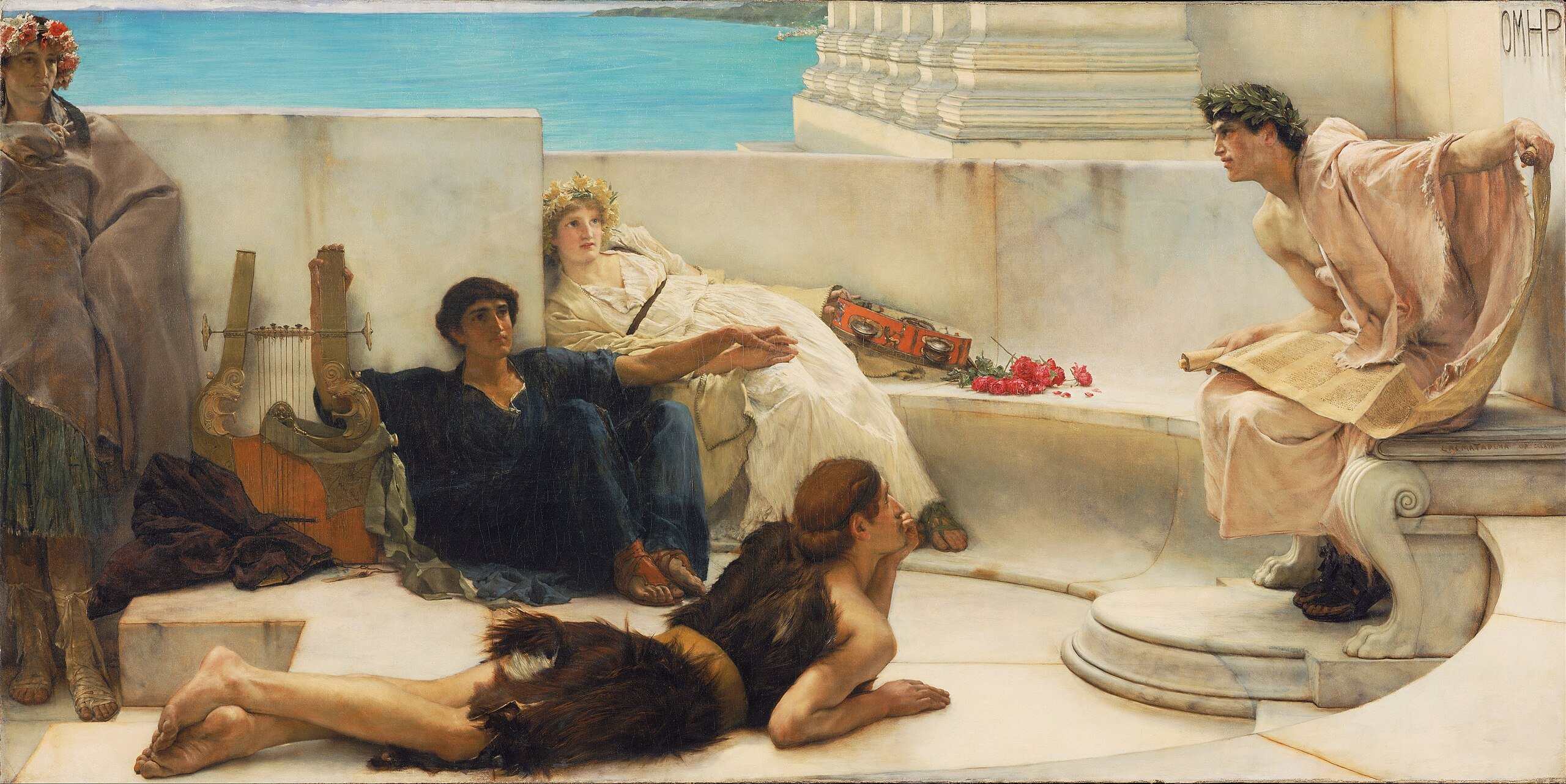

Homer is widely recognised as Greece’s oldest and most important poet. He was the composer of the Iliad and the Odyssey. However, the poet Hesiod is also extremely famous and important to Greek epic tradition. Is Homer generally regarded as the more ancient of the two? Or could it be that Hesiod preceded Homer?
One way to answer this intriguing question is by examining what the ancient Greeks believed about this subject. Unfortunately, there are countless conflicting claims about Homer’s chronological placement, so these ancient statements are of limited value.
When examining ancient sources, some writers claimed that Homer was older than Hesiod. Others asserted that they were essentially contemporaries, while yet others argued that Hesiod was older than Homer.
The most useful course of action, given these conflicting claims, would be to determine which claim is older. However, even this is not entirely clear. This is because the claims in question often come through the words of later writers who referenced them.
In such cases, there is an element of doubt regarding whether or not such later references accurately preserve what a more ancient writer said.
Several sources from the fourth century BCE place Hesiod earlier than Homer. One notable source for this idea is Ephorus of Cyme, a Greek historian who lived from c. 400 to c. 330 BCE.
However, another source that some historians have used to favour this order is the Contest of Homer and Hesiod. This is also known as the Certamen, from its Latin name. This Greek narrative tells the story of a poetic contest between these two poets.
The Certamen is a product of the second century CE, but there is strong evidence that it goes back much further; a surviving fragment with the same story as the Certamen dates to the third century BCE. There is evidence that Alcidamas, a fourth-century BCE Greek rhetorician, told this story.
The significance of this is that the Certamen presents Hesiod as speaking first in the contest, before Homer. It is the latter poet who responds to Hesiod’s interrogations. This, arguably, indicates that Hesiod was the older of the two poets and thus had the privilege of starting first.
As we can see, the idea that Hesiod came before Homer dates back to at least the fourth century BCE.
What about the evidence to the contrary? How ancient is the evidence that places Homer before Hesiod in the stream of time? Simply put, it is decidedly earlier than the evidence that places Hesiod before Homer.
It appears that the earliest source for this claim comes from Xenophanes of Colophon. He was a Greek philosopher who lived from c. 570 to 478 BCE. Hence, his writings and comments on Homer can be placed in the sixth century BCE, long before the Certamen and Ephorus.
Xenophanes was a critic of Homer. According to one fragment of his writings, he described Homer as the first teacher of Greece. He wrote:
“Since from the beginning everyone learned from Homer…”
This would appear to place Homer before Hesiod. The Roman writer Aulus Gellius of the second century CE supports this, claiming the following:
“Some wrote that Homer was older than Hesiod, for example Philochorus and Xenophanes.”
Given this evidence, it appears that the claim that Homer came before Hesiod is decidedly older than the claim that Hesiod predated Homer.
Is there any supporting evidence for this conclusion in the contents of their respective writings? Linguists have performed analyses of the language used in Homer’s poems and Hesiod’s poems to see which poet was using an older form of Greek.
Interestingly, Professor Richard Janko found that Hesiod’s poems display a more evolved form of Greek than Homer’s. This supports the idea that Homer predated Hesiod.
The difference in language between the Iliad and the Odyssey is minimal, consistent with the view that Homer wrote the latter somewhat after the former. However, the differences between Homer’s Iliad and Hesiod’s Theogony are five times greater than the differences between Homer’s Iliad and his own Odyssey.
This suggests that Hesiod’s Theogony was composed decidedly later than Homer’s Odyssey, hence explaining the more evolved form of Greek that Hesiod used.
Of course, this relies on plenty of assumptions that cannot be proven, such as the assumption that Hesiod’s more evolved Greek was not simply a reflection of his style.
Nevertheless, although admittedly weak, this linguistic evidence is consistent with the evidence from Xenophanes, who placed Homer before Hesiod.
